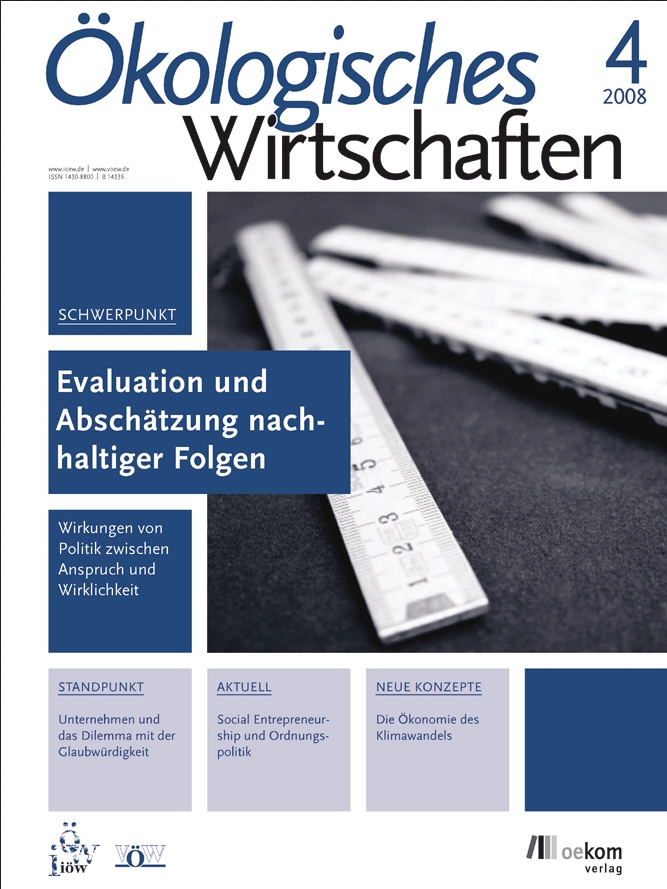A New Environmental Accounting Framework for Policy Analysis (EXIOPOL)
- Project
- Research Program
- Duration
-
-
For a sustainable development within the EU all social costs of economic activities have to be considered. The integrated project EXIOPOL aims to assess these costs, which include environmental impacts, for the EU-25 and will depict them in an environmentally extended input-output framework. The results of the assessment and the accounting framework will be applied to important policy issues and will help to assess the policy impact of past research.
For sustainable development within the EU, better measures of the social costs of different economic activities are needed. The Renewed Strategy for Sustainable Development from June 2006 advocates increased research in Green Accounting as well as work by Eurostat on sustainable development indicators. EXIOPOL therefore covers a number of crucial problems.
EXIOPOL sets up a detailed economy-environment model to estimate environmental impacts and external costs of different economic sectors and of the consumption of natural resources (energy, materials, land) for countries in the European Union. It is a European Integrated Project (IP) co-ordinated by the Fondazione Eni Enrico Mattei (FEEM) in collaboration with The Netherlands Organisation for Applied Scientific Research (TNO). EXIOPOL involves 37 partners from within and outside Europe. Partners have been selected for their experience in the two main research fields of this Integrated Project. These are the valuation of the external costs of environmental impacts and environmentally extended input-output analysis. An additional component is the application of the results for analysing policy questions and evaluating the current state of research in the topic area.
The EXIOPOL Integrated Project has 3 core objectives:
- To synthesise and develop comprehensive estimates of the external costs for Europe of a broad set of economic activities;
- To set up a detailed environmentally extended input-output table, with links to other socio-economic models, in which as many of these estimates as possible are included. Such a table does not yet exist for the EU-25. The Input-Output table enables the estimation of environmental impacts and external costs of different economic sector activities, final consumption activities and resource consumption for countries in the EU;
- To apply the results of the external cost estimates and environmentally extended input-output tables for the analysis of policy questions of importance, as well as to evaluate the impact of past research on external costs on policy-making in the EU.
The objectives reflect those of the Global Change and Ecosystem Work Programme, which emphasises quantitative analyses of external effects, and the elaboration of new accounting frameworks for sustainability assessment at micro, sectoral and macro levels.
The EXIOPOL project will create a novel toolbox supportive to a great variety of EU policy fields, such as Integrated Product Policy, the Strategy on Natural Resources, the Environmental Technologies Action Plan, sustainable consumption and production and the relation between sustainability and the Lisbon strategy.
The development of an integrative environmentally extended input-output framework, that will be linked with other macro-economic models, will also support tools usually applied at a micro-level, most notably Life Cycle Assessment (LCA). In particular, this combination will enable integrated identification and impact assessment of sustainability options at micro, sector and macro levels. The output rests on better quantitative information on the external costs of resource use and of emissions of all economic activities that have hitherto not been analysed in detail.
Ecologic’s role within EXIOPOL is to evaluate the impact of past externality research in the agricultural domain on national and European policy-making. In this context, the aim is to present examples of the policy impacts of research results and to discuss respective facilitators and barriers which influenced the uptake of those research results by policy-makers.




